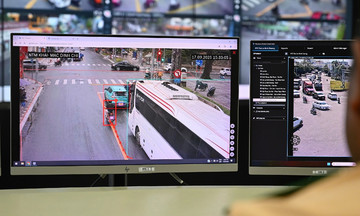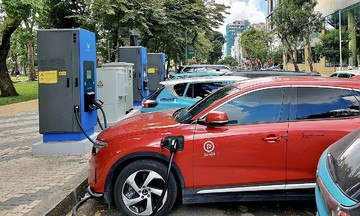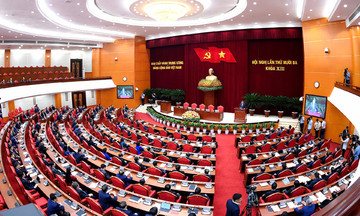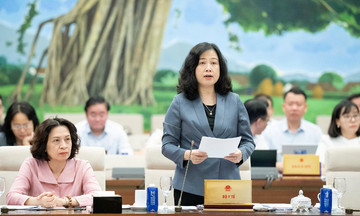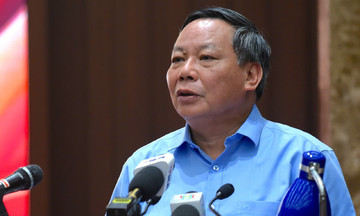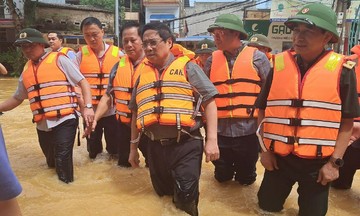On 16/9, the Politburo and the Secretariat held a national conference to disseminate four Politburo Resolutions on international integration, national energy security, education and training breakthroughs, and healthcare solutions.
Addressing the conference, Party General Secretary To Lam emphasized that the three new resolutions, along with the existing "four pillars," form a unified whole, a breakthrough to realize the two 100-year goals of building a strong, prosperous, enduring, and sustainable Vietnam. He requested that every agency, organization, and individual take responsibility for turning the resolutions into daily tasks, specific action plans with resources, deadlines, measurable indicators, monitoring, and accountability.
The Party leader requested the entire political system to follow the principles of five consistencies (political, legal, data, resource allocation, and communication); three public disclosures (objectives, progress, and results); three earliness (early completion of institutions, early start of key projects, and early capital allocation); and five clarities (clear tasks, clear personnel, clear responsibilities, clear timelines, and clear results) when implementing the resolutions.
Regarding Resolution 59 on international integration, the General Secretary emphasized the need to clearly identify international integration as a strategic driving force, based on internal strength playing a decisive role. Increasing internal strength goes hand in hand with taking advantage of external forces, closely linking integration with protecting national interests, cooperating while also struggling. Vietnam is transitioning from a following nation to a leading one, pioneering new fields.
Vietnam will pursue synchronous, comprehensive, and extensive integration, with economic integration as the central focus. Integration in other fields must facilitate economic integration, prioritizing economic restructuring, growth model innovation, and digital transformation.
Integration in politics, security, and national defense must aim to enhance national potential and standing, protecting the Fatherland early on, from afar, before danger arises. Science, technology, and innovation must be identified as the leading breakthroughs, aiming to bring domestic scientific and technological standards and regulations closer to advanced international standards and practices.
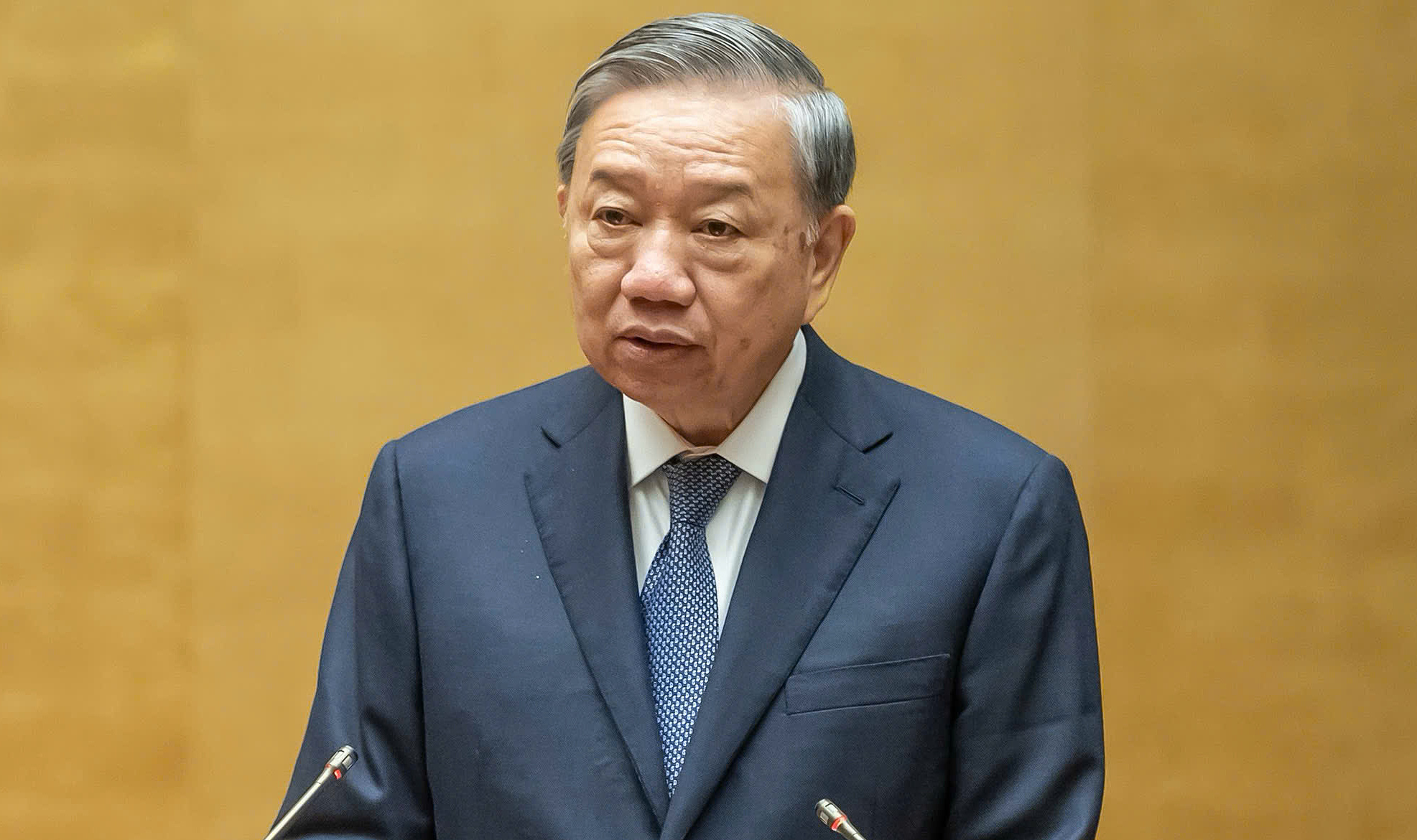 |
Party General Secretary To Lam speaks on the morning of 16/9. Photo: Hoang Phong |
Party General Secretary To Lam speaks on the morning of 16/9. Photo: Hoang Phong
Bottlenecks in implementing international commitments and agreements need to be addressed, along with strengthening the review and domestic legal incorporation of international law to fulfill Vietnam's obligations and commitments.
Vietnam needs to effectively utilize international commitments, agreements, and economic linkages, especially new-generation free trade agreements (FTAs), to enhance mutual benefits and avoid dependence on a few partners.
The General Secretary emphasized the need to promote high-quality foreign direct investment (FDI), especially from major global corporations that lead certain important supply chains such as information technology, telecommunications, semiconductors, and artificial intelligence. Vietnam will prioritize investment projects with advanced, new, high, and clean technologies, modern management, spillover effects, eco-industrial parks, innovation centers, logistics, and strategic infrastructure projects, including transport infrastructure.
Vietnamese businesses are encouraged to invest and operate effectively abroad, building international-level national brands. "We will move from open investment to a phase of selective FDI, not arbitrary," the General Secretary said.
Developing a competitive electricity market
Regarding Resolution 70 on national energy security, the General Secretary emphasized the core objectives of a safe, stable, and reliably backed-up energy system; sufficient supply for production and daily life; a shift towards green and low-emission energy; smart operation on a digital platform; and ensuring reasonable and transparent costs.
By 2030, Vietnam strives for a minimum capacity reserve of 15%, significantly reducing power loss; increasing the proportion of clean energy in line with planning; and building competitive and transparent electricity market mechanisms with a firm roadmap.
The resolution outlines 10 key solution groups, starting with balancing supply and demand by region, updating synchronous source-grid planning, and finalizing the list of key projects.
Transmission and storage systems will be heavily invested in, especially 500kV lines, smart grids, and pilot energy storage systems at bottlenecks. Capital for the power sector will be mobilized from various sources, from public-private partnerships to green bonds and power purchase agreements with reasonable risk allocation; applying a capacity payment mechanism for flexible sources.
The electricity market will develop competitively according to a roadmap, standardizing the long-term reference price mechanism, and enhancing transparency. "Diversifying fuels and providing liquefied natural gas (LNG) reserves, ensuring storage capacity, pipelines, long-term contracts, and strategic coal/gas reserves," the General Secretary said, requesting the promotion of energy efficiency, demand management, time-of-use pricing, and mandatory savings for large loads.
Renewable energy is developed with a systems approach: competitive bidding, synchronous source-grid-storage planning, and fair connection cost sharing. Vulnerable population groups will be protected, along with ensuring electricity for essential industries through targeted support packages with deadlines and transparent compensation sources. The power sector will undergo digital transformation through remote metering, real-time data, AI-powered load forecasting, and cybersecurity.
Human resources in the power sector will be developed along with localization, such as training system engineers and supporting industries. "Focus on institutional reform, facilitating the attraction of social resources, especially the private sector, to participate in renewable energy investment, transmission, and power distribution," the General Secretary said.
Combating rampant tutoring
With Resolution 71 on education and training breakthroughs, the General Secretary emphasized that education and training are the top national policy and the key driving force for national development. "Investing in education is investing in and enhancing the nation's vital energy; it is investing in the nation's future," he said.
The resolution outlines eight main solution groups, including developing national learning outcome standards by level and profession; implementing mandatory accreditation and public rankings. Educational programs will be renewed, along with combating achievement-oriented practices and rampant tutoring. The teaching force needs breakthroughs in new professional standards and performance-based remuneration; scholarships to attract teachers, digital training, and ensuring ethics and honor.
University autonomy is promoted alongside accountability and program development with businesses. Vocational education is linked to supply chains, real learning, and real work according to the dual model; recognizing digital skills certificates; and evaluation by businesses.
The education sector needs to develop national open educational resources, lifelong electronic learning records, and a secure examination platform, ensuring data security. Disadvantaged groups will be supported with appropriate solutions instead of "concessions."
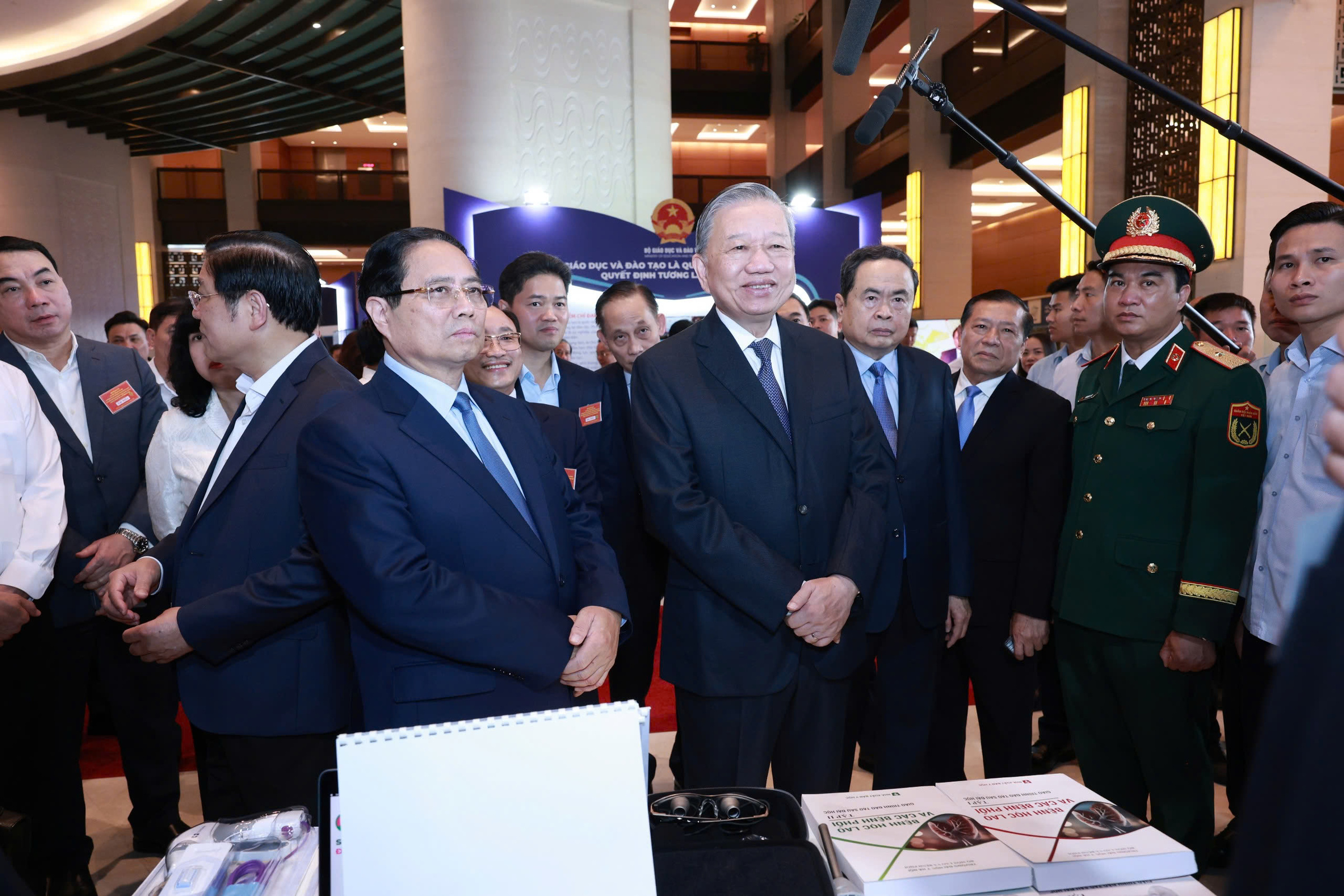 |
Party General Secretary To Lam and Prime Minister Pham Minh Chinh, along with delegates, visit the exhibition before the conference, morning of 16/9. Photo: Hoang Phong |
Party General Secretary To Lam and Prime Minister Pham Minh Chinh, along with delegates, visit the exhibition before the conference, morning of 16/9. Photo: Hoang Phong
Universal health insurance, reducing patient costs
Regarding Resolution 72 on healthcare solutions, the General Secretary stated that prevention is key, infrastructure is fundamental, and the people are the center. The goals are to increase healthy life expectancy, reduce patient payments, digitize the system, strengthen grassroots healthcare, and improve service quality and patient satisfaction.
Among the solutions outlined by the General Secretary are strengthening preventive healthcare and community health through vaccination, nutrition, and non-communicable disease prevention; and real-time epidemiological surveillance. Grassroots health systems and family doctors will be developed, including upgrading health stations, implementing basic service packages, and connecting hospital levels. "Every citizen must be cared for, protected, and have their health assessed; no one is left behind," the General Secretary said, expressing his hope for centers to care for and combat loneliness among the elderly.
Vietnam will expand universal health insurance along with value-based payments, expanding benefits, and reducing patient costs. Hospital autonomy will be promoted with oversight; service prices will be based on actual costs, quality will be transparent, procurement will be centralized and transparent, and vested interests will be combated. The State encourages domestic production of pharmaceuticals, equipment, and vaccines that meet international standards.
"Strive for a healthy population for learning, working, happiness, and national defense," the General Secretary emphasized.
According to the Party leader, the country's new development momentum stems from the organic links between the resolutions. International integration is the gateway to the world; stable and green energy is a prerequisite for production, schools, and hospitals; high-quality education and training provides future system engineers, doctors, and public service administrators; and modern healthcare, strong prevention, and good care help people stay healthy to learn, work, and innovate.
Vu Tuan






